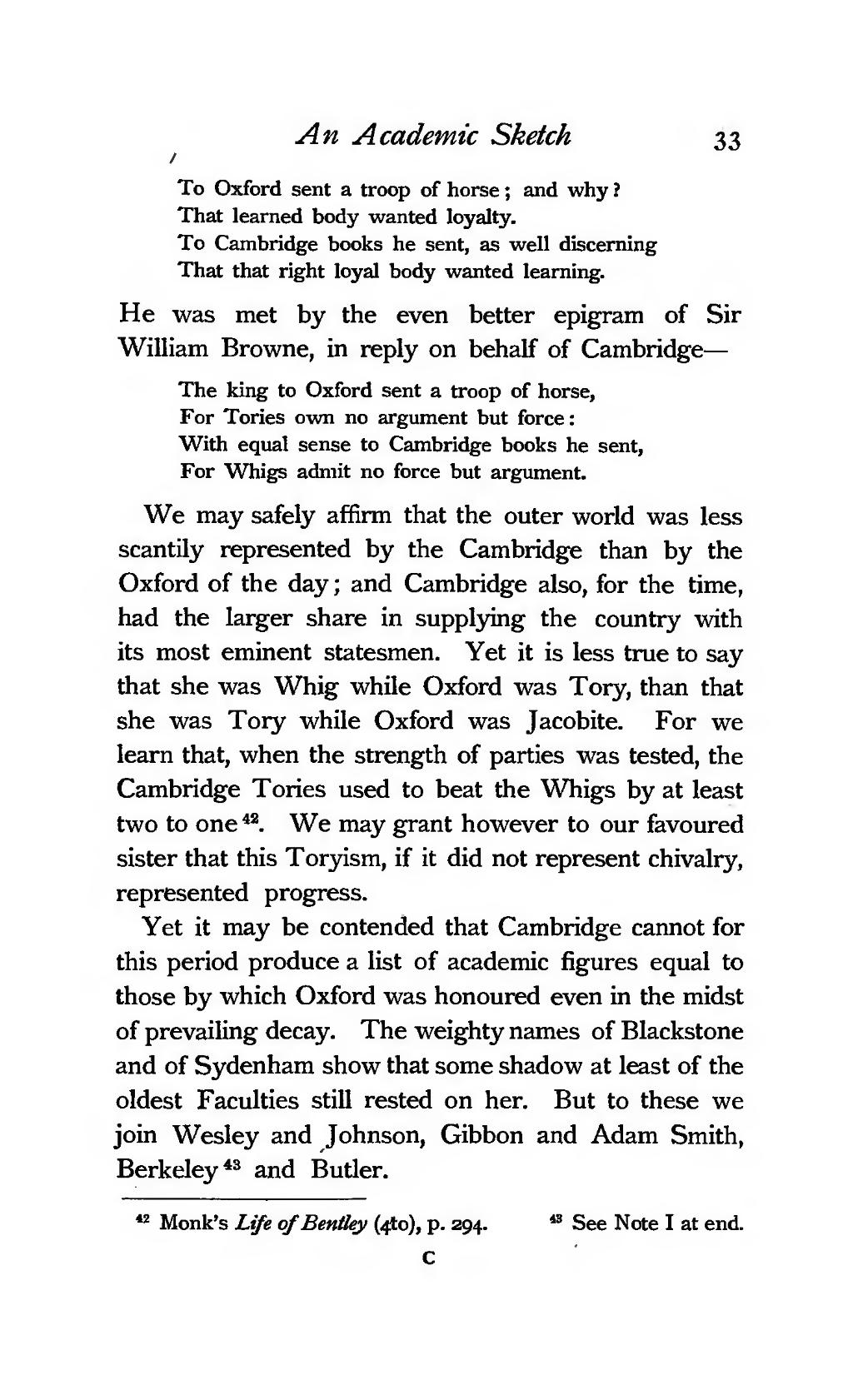To Oxford sent a troop of horse; and why?
That learned body wanted loyalty.
To Cambridge books he sent, as well discerning
That that right loyal body wanted learning.
He was met by the even better epigram of Sir William Browne, in reply on behalf of Cambridge—
The king to Oxford sent a troop of horse,
For Tories own no argument but force:
With equal sense to Cambridge books he sent,
For Whigs admit no force but argument.
We may safely affirm that the outer world was less scantily represented by the Cambridge than by the Oxford of the day; and Cambridge also, for the time, had the larger share in supplying the country with its most eminent statesmen. Yet it is less true to say that she was Whig while Oxford was Tory, than that she was Tory while Oxford was Jacobite. For we learn that, when the strength of parties was tested, the Cambridge Tories used to beat the Whigs by at least two to one[1]. We may grant however to our favoured sister that this Toryism, if it did not represent chivalry, represented progress.
Yet it may be contended that Cambridge cannot for this period produce a list of academic figures equal to those by which Oxford was honoured even in the midst of prevailing decay. The weighty names of Blackstone and of Sydenham show that some shadow at least of the oldest Faculties still rested on her. But to these we join Wesley and Johnson, Gibbon and Adam Smith, Berkeley[2] and Butler.
- ↑ Monk's Life of Bentley (4to), p. 294.
- ↑ See Note I at end.

